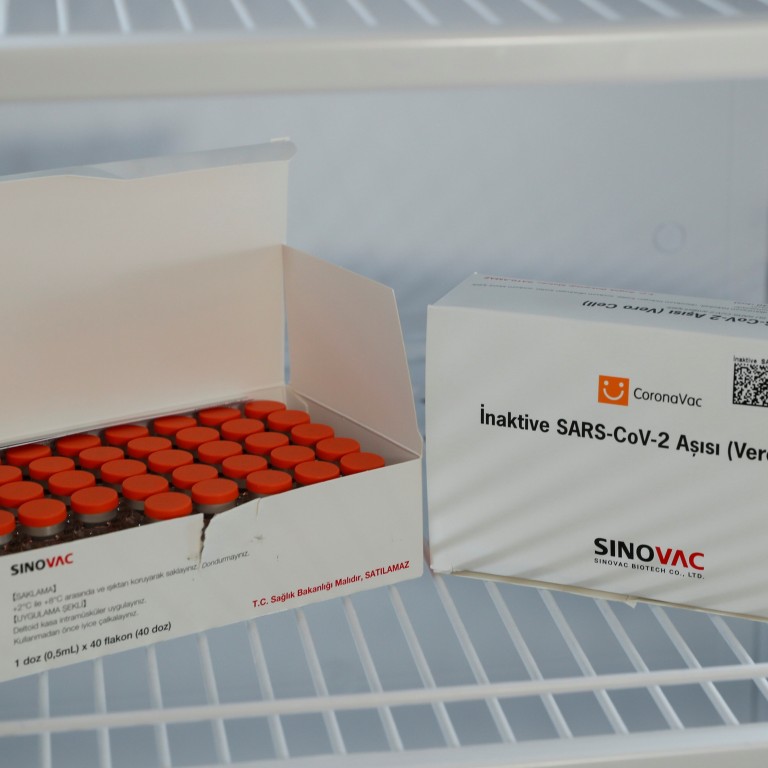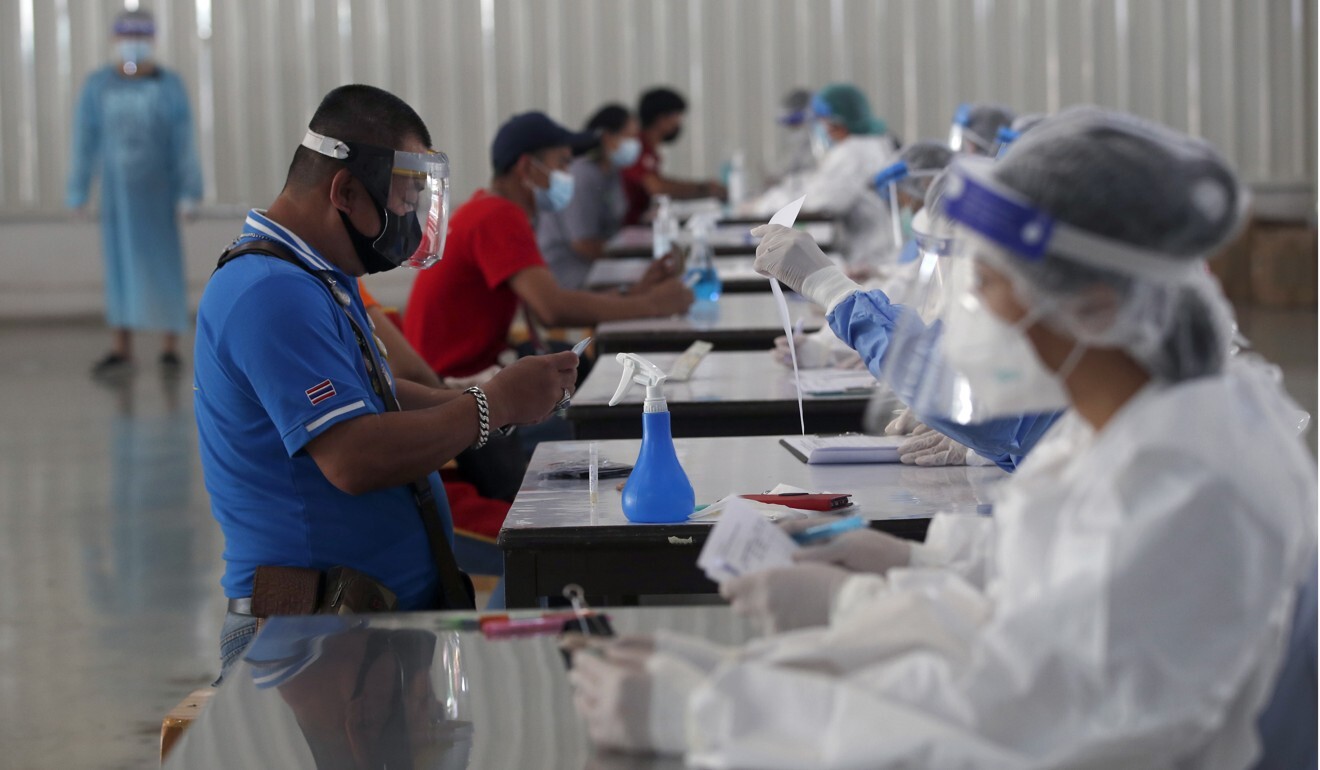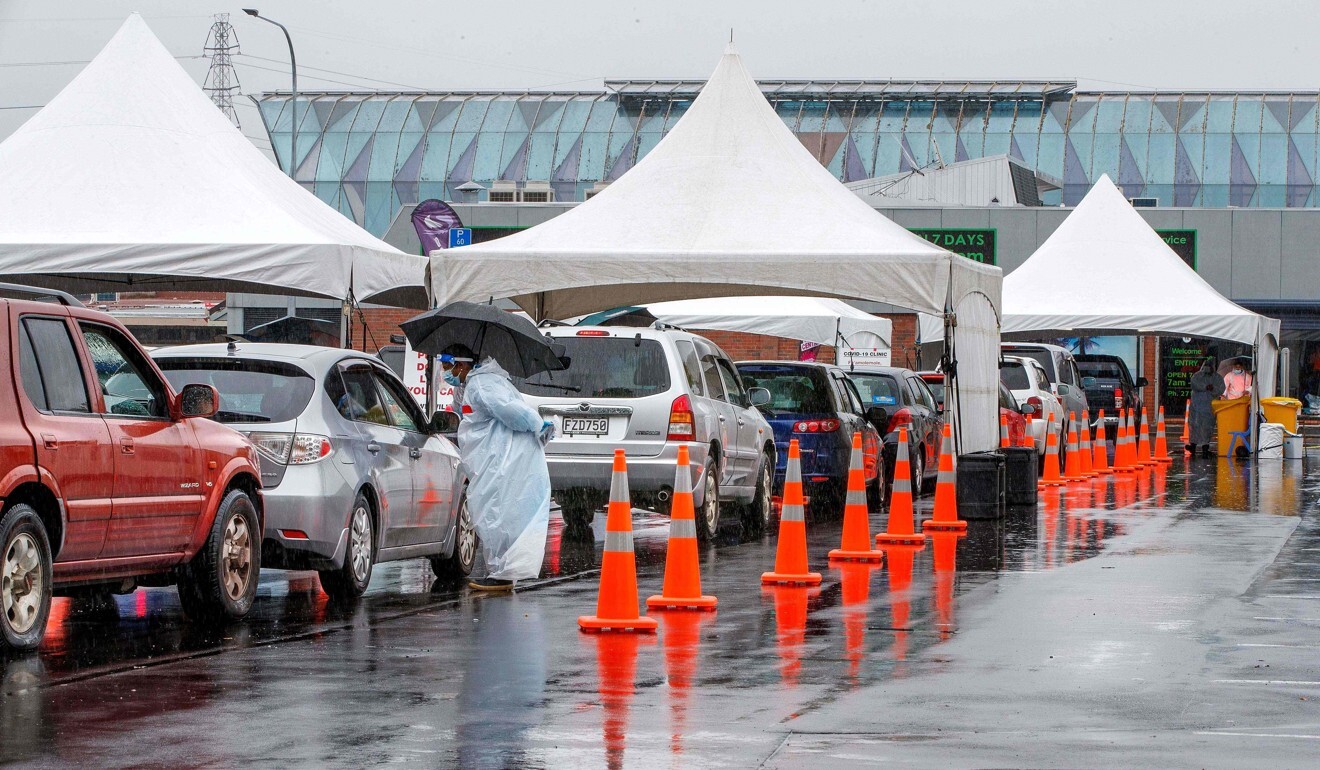
Coronavirus: Thailand, Philippines approve Sinovac jabs for emergency use; Air NZ to trial digital ‘vaccination passports’
- Thailand authorised the use of the Chinese-made Sinovac shot on Monday, with its neighbour also giving the jab the green light
- Elsewhere, Air New Zealand will trial a digital health certificate that can be securely shared with airlines
Thailand’s Food and Drug Administration (FDA) on Monday gave emergency use authorisation for Sinovac Biotech’s Covid-19 vaccine, paving the way for the country’s first coronavirus inoculations.
Thailand’s authorisation came just days before it is set to receive the first 200,000 of 2 million doses of Sinovac’s CoronaVac, its first batch of Covid-19 vaccines, which will be given primarily to health workers.
Thailand’s drug dealers drop prices as coronavirus curbs exports
“The FDA has registered Sinovac’s Covid-19 vaccine for conditional emergency use, effective February 22,” said FDA deputy secretary-general Surachok Tangwiwat.
Thailand has recorded just 25,504 coronavirus cases in total, more than four-fifths of those since December, with 89 deaths overall.

The government has ordered 26 million coronavirus vaccine doses from AstraZeneca, and reserved a further 35 million doses from the company.
Astrazeneca has authorised a Thai firm to manufacture the vaccine and it will be used for the country’s mass vaccination campaign from June.
Prime Minister Prayuth Chan-ocha said on Monday he would personally receive the Sinovac vaccines when they arrive. Despite Thai health authorities limiting its usage to people under 60, Prayuth, who is 66, said he was ready for his dose.
Philippines gets Sinovac jab, but vaccine roll-out stalls on liability fears
In the Philippines, Health Secretary Francisco Duque said Sinovac had asked for three to five days to ready shipments to the country.
The first Sinovac shots will likely be administered to soldiers and other non-health front-line workers like supermarket employees, presidential spokesman Harry Roque said in a separate briefing. Duterte may only allow face-to-face classes once vaccines are rolled out, he said.
Indian vaccine maker urges patience as it prioritises domestic demand
“Dear countries & governments, as you await #COVISHIELD supplies, I humbly request you to please be patient,” Serum chief Adar Poonawalla tweeted on Sunday.
“@SerumInstIndia has been directed to prioritise the huge needs of India and along with that balance the needs of the rest of the world. We are trying our best.”
The institute, from its sprawling facility in Pune in western India, is producing hundreds of millions of doses of the AstraZeneca vaccine.
India rivals China in Covid-19 vaccine diplomacy with million doses for South Africa
Many countries around the world, particularly poorer nations, are relying heavily on the company for supplies of the vaccine, and it has already shipped millions of doses abroad.
Poonawalla did not say who had told the firm to prioritise India, or whether the instructions were new.
India’s aim of inoculating 300 million people by July is falling well behind schedule with just over 11 million shots given so far.
The problems however are thought to lie more with not enough people coming forward for the vaccinations rather than problems with supplies of the shots.

Air NZ to trial digital ‘vaccination passports’
Air New Zealand will trial a digital travel pass to give airlines and border authorities access to passenger health information, including their Covid-19 vaccination status, the carrier said on Monday.
The scheme, dubbed a “vaccination passport” by industry observers, is intended to streamline travel once borders reopen by allowing passengers to store their health credentials in one place.
“It’s essentially like having a digital health certificate that can be easily and securely shared with airlines,” said Air New Zealand chief digital officer Jennifer Sepull.
It relies on an app developed by the International Air Transport Association (AITA) and other airlines including Etihad and Emirates have already signed up for their own trials.
Boris Johnson says world needs Covid-19 pandemic treaty
The industry body’s senior vice-president Nick Careen said it was an important milestone in restarting international travel as global vaccine rollouts get underway.
“Governments can be confident that passengers who are ‘OK to travel’ are in full compliance of Covid-19 travel requirements,” he said.
Careen said the app ensured privacy by giving users control of the health data they provided.
The Air New Zealand trial begins in April.
What if Covid-19 vaccines aren’t enough for herd immunity?
Meanwhile, the New Zealand government on Monday removed remaining coronavirus restrictions from Auckland after an outbreak discovered in the largest city fades away.
Prime Minister Jacinda Ardern said more than 72,000 tests had found no evidence the virus was spreading in the community.
The source of the outbreak remains unclear, although authorities continue to investigate whether there is a connection between infected airline passengers and the mother, who works at a company which cleans laundry for airlines.
New Zealand has an elimination strategy with the coronavirus and has managed to stamp out its spread.

01:47
South Korea tests pets for Covid-19 after first animal infection
South Korean doctors threaten strike, sparking vaccine disruption fears
Health care workers are set to receive the first batch of AstraZeneca’s vaccine from Friday, as South Korea looks to protect 10 million high-risk people by July, on its way to reaching herd immunity by November.
But over the weekend, the Korean Medical Association (KMA), the largest grouping of doctors in the country, said it would go on strike if parliament passed the bill to revoke the licences of doctors getting jail terms.
Why do South Korean churches attract Covid-19 and conspiracy theories?
“The bill might result in ordinary, innocent doctors being stripped of their licences and falling into hell because of an accident that has nothing to do with their job, or lack of legal knowledge,” spokesman Kim Dae-ha said in a statement on Monday.
Association president Choi Dae-zip has called the bill “cruel”, saying its passage into law would “destroy” current cooperation with the government to treat the virus and carry out the vaccine campaign. However, no date has been set yet for the strike, the KMA said.
The stand-off stoked concern that a doctors’ strike could slow South Korea’s vaccine roll-out at a time when authorities are scrambling to allocate medical personnel to about 250 inoculation centres and 10,000 clinics nationwide.
Parliament has been seeking to revise the Medical Service Act to ban physicians guilty of violent crimes, such as sexual abuse and murder, from practising their skills.
North Korean hackers tried to steal Pfizer vaccine data: South Korean lawmaker
Ruling party lawmakers pushing for the bill denounced the association, saying it was trying to “take public health hostage to maintain impunity from heinous crimes”.
The group of nearly 140,000 has a long history of medical policy disputes with the government.
Many hospitals were depleted of staff during the pandemic last year when it steered weeks-long walkouts over plans to boost the number of medical students, build medical schools, ease insurance coverage and increase telemedicine options.
Australia begins mass vaccination roll-out
Australia on Monday began its mass Covid-19 vaccine programme with frontline health care staff and senior citizens getting the first doses as the country looked set to report no local cases for the third straight day.
“Today is a real milestone in our collective response to tackle Covid-19 and bring things as rapidly under control as we can,” Acting Chief Medical Officer Michael Kidd told the Australian Broadcasting Corporation.
The vaccine, jointly developed by Pfizer Inc and Germany’s BioNTech, will be rolled out in the initial weeks while AstraZeneca’s first batch is expected to reach the country in the next two weeks.
Pacific Islands look to US, Australia, New Zealand for Covid-19 vaccines
The exercise, called a “game changer” by Morrison, is being billed as one of the most complex logistical operations in the country’s history as the Pfizer vaccines need to be stored below minus 70 degrees Celsius.
Victoria, the country’s second-most populous state, on Monday reported no new cases for the third day in a row, suggesting a fresh outbreak in state capital Melbourne has been contained. Other states and territories have effectively eliminated the virus.
Reporting by Reuters, Associated Press, Agence France-Presse


